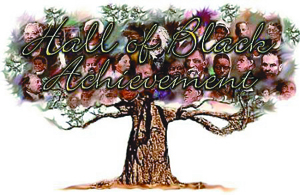Title
Scholar (1868-1963)
Preview

Artist
Larry Johnson
Medium
Oil
Dimensions
Approx. 18 x 24 in.
Date
1988
Biographical Information
William Edward Burghardt DuBois, outstanding among Negro intellectuals and a militant civil rights leader, was born in Great Barrington, Massachusetts. His childhood in New England was a happy one until he experienced his first rejection because he was a Negro, when he was sharply snubbed by a newcomer at a school party. This incident helped set the course of a gifted youth’s life. He became determined to establish a record of excellence in all of his school activities. At the age of sixteen, he graduated from college preparatory school with honors. Because of the influence of his mother and one of his teachers, he went to Fisk University instead of Harvard, where he had planned to study.
In 1888, DuBois entered Harvard, where he won the Boylston oratorical contest and was one of the six commencement speakers. After two years of study in Germany, he returned to America, receiving his Ph.D. in 1895. He accepted appointments to teach at Wilberforce University and the University of Pennsylvania before moving to Atlanta University to head the department of history and economics for thirteen years. Here he wrote, for the Atlantic Monthly, World’s Work and other magazines, articles that later were collected in The Souls of Black Folk (1903), a sociological study of the Negro people.
Infuriated by the compromising leadership of Booker T. Washington at the turn of the century and by the denial of protection of Negro citizens as race riots spread throughout the North, DuBois backed the Niagara movement, advocating civil rights for Negroes. When the Springfield, Illinois race riot shocked a group of liberal whites into forming a civil rights group, which later became the NAACP, they invited the participants of the Niagara movement to join them. With the establishment of the NAACP, DuBois became the editor of its Crisis magazine.
In 1919, he launched the Pan-African Congresses in Paris, to focus world opinion on the conditions and status of black men. In his fight against discrimination and economic exploitation of the Negro, DuBois published books, articles, and poems to set forth his views. Some of his works are: The Suppression of the African Slave Trade (1896); John Brown (1909); Darkwater (1920); Black Reconstruction (1935); Black Folk Then and Now (1939); Color and Democracy (1945); and The World and Africa (1965). At the time of his death, he was living in Ghana and serving as editor in chief of the Encyclopedia Africana.
DuBois was generally recognized as one of the most incisive thinkers and effective platform orators in the United States, as well as one of the most profound scholars of his time and generation.
Recommended Citation
W.E.B. DuBois. (1988). In Massachusetts Hall of Black Achievement. Item 16.
Available at https://vc.bridgew.edu/hoba/16
